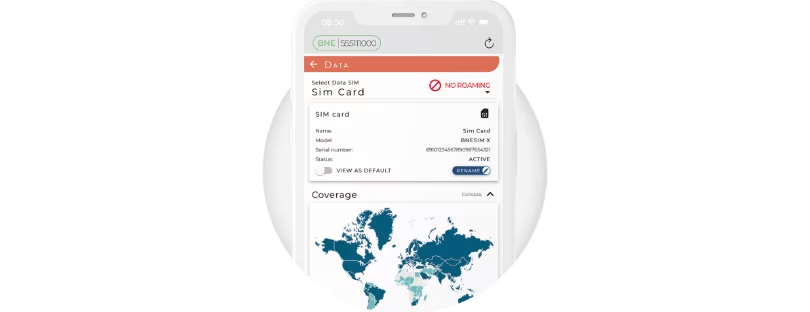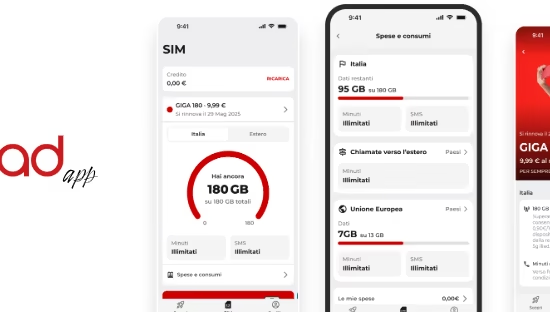
Are Unlimited SIM Cards Worth the Price?
Let’s face it: we live in a world where staying connected isn’t just a luxury—it’s a necessity. Whether you’re scrolling through Instagram, streaming your favorite show, or navigating your way through a new city, data is the lifeblood of modern living. And when it comes to data, nothing sounds more tempting than the promise of an unlimited SIM card. But here’s the million-dollar question: are unlimited SIM cards really worth the price, especially in the EU?
Let’s dive in and break it down.
What Exactly Is an Unlimited SIM Card?
First things first, let’s clarify what we’re talking about. An unlimited SIM card typically offers unlimited calls, texts, and—most importantly—data. Sounds like a dream, right? No more worrying about running out of data or getting hit with overage charges. But before you start imagining yourself binge-watching Netflix on a train across Europe without a care in the world, let’s take a closer look at the reality.
The EU’s Roaming Revolution: A Game-Changer
If you’re in the EU, you’re in luck. Thanks to the EU’s roaming regulations, you can use your SIM card in any EU country without incurring extra charges. This means your unlimited SIM card in Germany works just as well in France, Spain, or Italy. It’s a huge perk for travelers, digital nomads, or anyone who frequently crosses borders within the EU.
But here’s the catch: while roaming is free, the actual cost of unlimited SIM cards varies widely across EU countries. So, is it worth shelling out the extra cash for unlimited data, or are you better off with a more modest plan? Let’s explore.
The Price Tag: How Much Are We Talking?
Unlimited SIM cards aren’t exactly cheap. In the EU, prices can range from around €20 to €50 per month, depending on the country and provider. For example:
- Germany: Unlimited plans start at around €30-€40 per month.
- France: You’re looking at €20-€30 for unlimited data.
- Spain: Prices hover around €25-€35.
- Eastern Europe: Countries like Poland or Hungary often have cheaper options, sometimes as low as €15-€20.
Now, compare that to limited data plans, which can cost as little as €10-€15 per month for 10-20 GB of data. That’s a significant difference. So, is the jump to unlimited justified?
Who Really Needs Unlimited Data?
Let’s be honest: not everyone needs unlimited data. If you’re someone who mostly uses Wi-Fi at home, work, or cafes, a limited plan might be more than enough. But if you fall into one of these categories, unlimited data could be a game-changer:
- Heavy Streamers: If you’re constantly watching videos, listening to music, or streaming podcasts on the go, unlimited data can save you from buffering nightmares.
- Frequent Travelers: Whether you’re road-tripping across the EU or hopping between cities, unlimited data ensures you’re always connected without worrying about roaming fees.
- Remote Workers: If your job requires you to be online 24/7, unlimited data is a no-brainer.
- Gamers: Mobile gaming can eat up data faster than you can say “Fortnite.”
The Fine Print: Is It Really Unlimited?
Here’s where things get tricky. Not all unlimited plans are created equal. Many providers have a sneaky little thing called fair usage policies. This means that while your data is technically unlimited, there may be a cap on high-speed data. Once you hit that cap, your speeds could be throttled to a crawl.
For example, you might get 100GB of high-speed data, after which your speeds drop to something painfully slow, like 1Mbps. For basic browsing, that’s fine, but good luck streaming HD videos. Always read the fine print before committing to a plan.
The EU Advantage: Roaming Without the Drama
One of the biggest selling points of unlimited SIM cards in the EU is the seamless roaming experience. Imagine traveling from Lisbon to Helsinki without having to worry about switching SIM cards or racking up insane roaming charges. It’s a level of convenience that’s hard to beat.
But here’s a pro tip: if you’re only traveling occasionally, you might not need an unlimited plan. Many providers offer affordable roaming packages or temporary data boosts for travelers. It’s worth exploring these options before committing to a pricier unlimited plan.
The Alternatives: Is There a Better Option?
If unlimited data feels like overkill, there are plenty of alternatives to consider:
- Limited Data Plans: As mentioned earlier, these are often much cheaper and can still provide plenty of data for most users.
- Pay-As-You-Go: Perfect for light users who don’t want to commit to a monthly plan.
- Dual SIM Phones: Use one SIM for calls and texts and another for data. This can be a cost-effective way to manage your usage.
- Wi-Fi Hotspots: If you’re mostly in urban areas, public Wi-Fi can supplement your data needs.
The Verdict: Are Unlimited SIM Cards Worth It?
So, are unlimited SIM cards worth the price? It depends. If you’re a heavy data user who values convenience and peace of mind, then yes, they’re absolutely worth it. The ability to use your phone without constantly monitoring your data usage is liberating, especially in the EU where roaming is a non-issue.
On the other hand, if you’re a light user or someone who’s always near Wi-Fi, you might be better off with a more affordable limited plan. Why pay for unlimited data if you’re not going to use it?
Final Thoughts: Do Your Homework
Before jumping on the unlimited bandwagon, take the time to assess your needs and compare plans. Look beyond the flashy marketing and dig into the details. How much high-speed data do you really get? Are there any hidden fees? What’s the coverage like in the areas you frequent?
At the end of the day, the best plan is the one that fits your lifestyle and budget. Whether that’s an unlimited SIM card or a more modest option, the choice is yours. Just remember: in the world of mobile plans, knowledge is power. So, do your homework, ask questions, and don’t be afraid to switch providers if you find a better deal.
And hey, if you do go for an unlimited plan, enjoy the freedom of streaming, scrolling, and surfing to your heart’s content. After all, in today’s connected world, a little extra data can go a long way.











